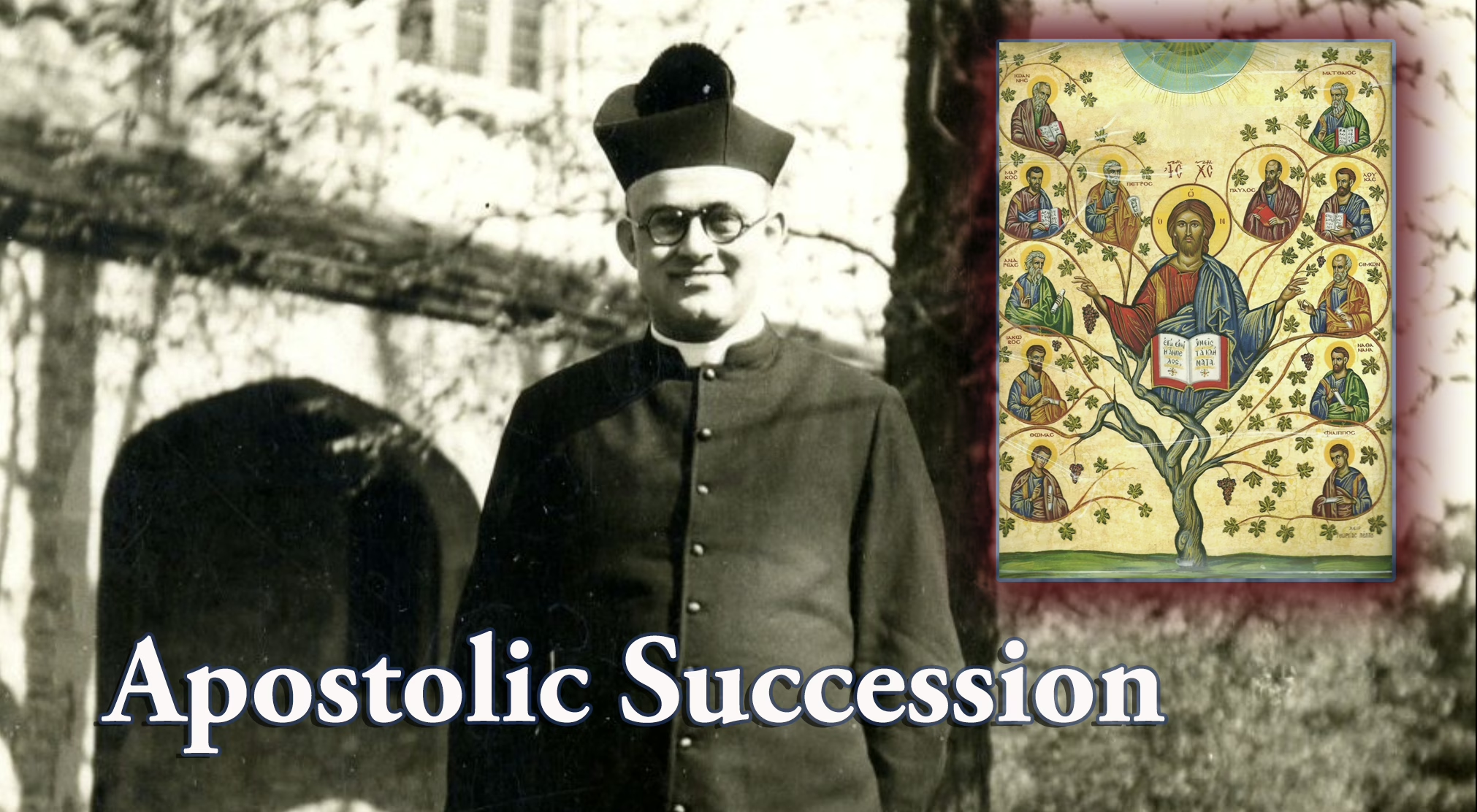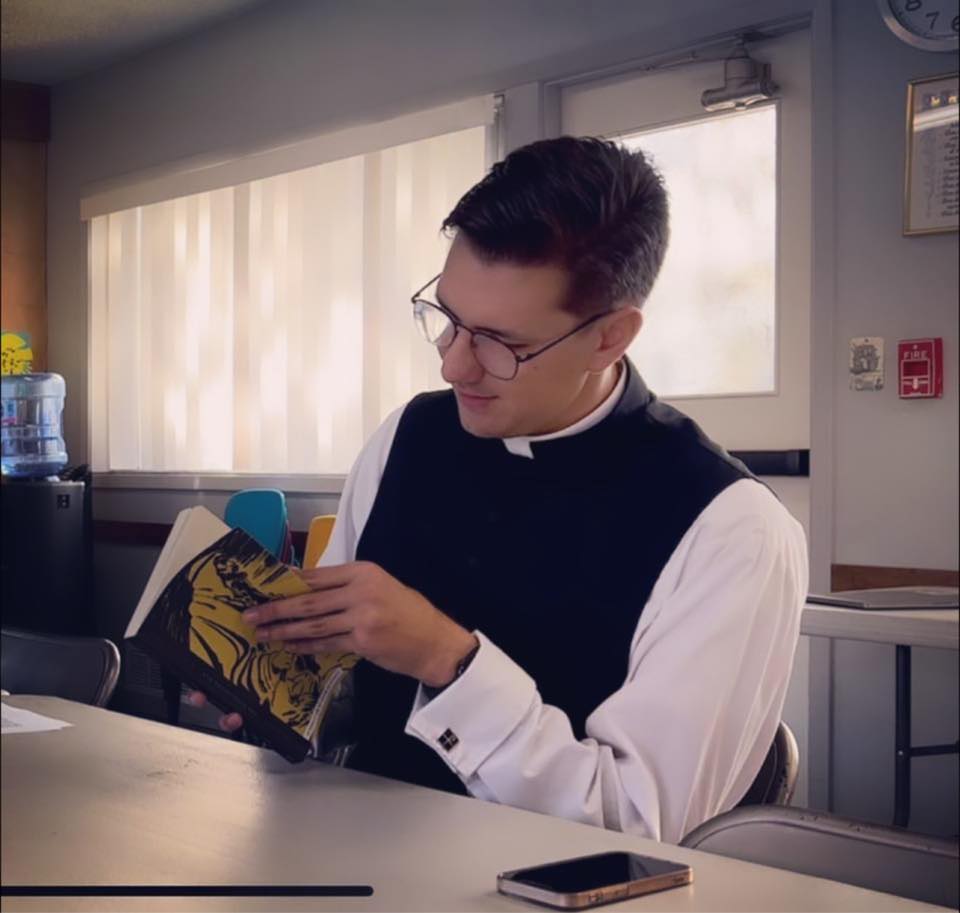This blogpost summarizes the arguments in first 20 pages or so of Apostolic Succession: Is It True? An Historical and Theological Inquiry by The Rev. Felix L. Cirlot, Th. D. He was head of the New Testament Dept. at Nashotah House.
At the start of his book, Cirlot wants to address an important objection, one that remains common today
The objection is listed on page 3 like this:
“The doctrine of Apostolic Succession is sacerdotal, and sacerdotalism is completely discredited in Protestant circles today.”
“Sacerdotalism” is a loaded term, often caricatured as the superstitious notion that priests hold a magical power in themselves—apart from God’s will or obedience to His Word—to dispense grace and forgiveness on the basis of man-made traditions.
But the objection carries serious implications: if Apostolic Succession is true, what of churches that lack it? Are their orders and sacraments invalid? If so, how can one account for the evident work of God within such churches—or, conversely, the lack of righteousness in some that claim to possess the succession?
The Historical Objection to Apostolic Succession
The objection leads into the historical, what do we do with the “evidence” that shows that presbyters ordained as a group in the early Church (e.g. Council of Ancyra, AD 314)? Did Christ himself even intend to establish a visible church order? What evidence do we have that the Apostles had any authority in themselves to establish any sort of institutional church?
Circlot wants to answer the objection that the primative church was closer to Presbyterian or congregational in its polity—or more common today is the idea that “no one polity was deemed in any way essential or divinely authoritative.” And if the history were evidently in favor of episcopacy, one should still need to demonstrate Biblical authority.
Basically, the objection is:
1) Christ has not explicitly instituted the episcopacy
2) Christ did not explicitly confer apostolic authority on a visible church
3) The Early Catholic Church has examples of diverse (and non-episcopal) polities
If any of these are true or historical, Episcopacy/Apostolic Succession cannot be made an “absolute essential of Christianity.”
Is the Apostolic Succession position arrogant?
The answer offered by Cirlot begins with the statement that it is not “uncharitable” to insist on one true answer to the question of our church’s polity. If it is true then it is reasonable to expect all to abide by the narrow truth. It is not catholic arrogance to insist on one opinion any more than the other side insists on their own.
“Nor is it blameworthy for the Church to think that she is the one that is right, any more than it is blameworthy for a Protestant or his sect to think so.” (pg. 10)
What Are Actual Claims of Apostolic Succession
Before we can adequately answer the objection, we must first determine whether our opponents are actually disputing what we have claimed. Some may reject episcopacy not on its own merits, but out of fear of “popery” or some perceived anti-protestant consequence of the idea.
The Apostolic Succession Claim:
“The Catholic Church has traditionally claimed that both the visible society which is the Church, and the three highest orders of its hierarchy, are of direct and “positive” Divine institution and authority. Therefore, there exists an absolute moral obligation of loyal and obedient membership in it. Outside the Church there is consequently no salvation.” (pg. 11)
Let’s breakdown these claims:
- The Church (of the New Testament)
- visible society endowed with positive divine authority
- called “the Church,” later “the Catholic Church” or “the holy Church.”
- Polity (Three-Fold Episcopacy)
- Has an authoritative threefold ministry of bishops, priests, and deacons
- ,Succeed the authority Christ gave the Apostles to bind and loose.
- “Powers” of Episcopate, Presbyter, Diaconate differ
- Only bishops can validly ordain;
- only bishops and priests can validly celebrate the Eucharist.
- The Church is Truly One
- If a church loses this ministry, it ceases to be a real part of the one Church
- without restoration, it remains sectarian as no man can ordain himself.
- regardless of titles retained, Bishops are tied to this historic succession.
- Where no valid bishop remains, no valid Eucharist can be celebrated after the last validly ordained clergy die.
- Apostolic Succession is Essential, but not sufficient
- Not just a better polity (bene esse) but required (very esse)
- A valid ministry is required, but does not itself make a body a true part of the Church.
- A sect may have valid orders (Apostolic Succession) yet still not be part of the true Church.
- Continuity with the “Catholic” Church, orthodoxy, and freedom from schism are also required.
Cirlot writes:
“Hence, even if a humanly-founded sect were to secure an indisputably valid ministry, profess officially a completely orthodox theology, and in all other essential respects perfectly imitate Catholicism, it would still not be a Catholic Church. It would only resemble one.” (pg. 12)
Understanding Key Terms
“Visible Society” – Objective Membership
“By a “visible society” we mean an organized society with limits determinable by some objective external criterion (such as circumcision among the Jews, baptism among the Christians, initiation in a fraternity, the oath of office in a public official).” (pg. 13)
We also have visible officers, corporate meeting, meals, and property. Contrasted with invisible society. God’s promises were made to a visible church and his covenant with a corporate people, not an undefined number of individuals.
“Positive” Divine Authority
The Church is an institution by the the will of God. Cirlot writes, “the Church and her Ministry rest on definite assignable Divine acts, either of institution, of ratification, or of change, by God Himself…”
“Valid” – Orders and Sacraments
To say that a modern sect’s ministry and sacraments are not valid does not mean they have no grace, value, or fruitfulness. It simply means that whatever grace or benefit they do have is uncovenanted. The sovereign God works as He wills (even miraculously outside the church), but we have certain assurance of His promises when we follow His valid, covenanted order.
“Schismatic corporate worship, whether sacramental or not, must be held to be, objectively speaking, a violation of God’s gracious covenant with mankind, and indeed an act of rebellion against His will. This is not to say that it is, granted its complete good faith, either devoid of Divine grace to the sincere worshippers, or displeasing (under the circumstances) to God. Undoubtedly Divine grace is most bountifully dispensed outside God’s covenant with mankind.”(pg. 16)



Leave a Reply